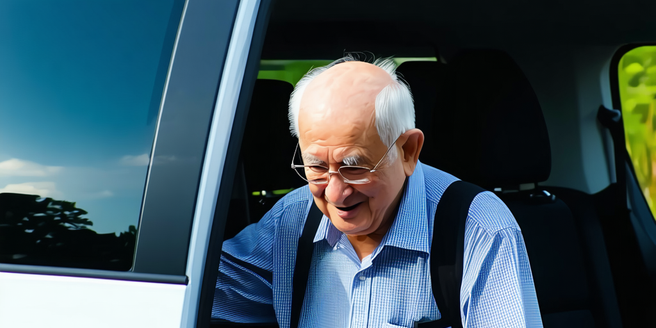Elderly Care Through Community Health Services

Understanding Community Health Services for Seniors
Community health services for seniors encompass various programs designed to promote wellness and independence among the elderly population. These services may include home healthcare, nutritional support, and wellness workshops. By understanding the specific needs of seniors, these programs aim to reduce hospital admissions and improve quality of life. Community health workers, often familiar faces in the community, play an essential role in building trust and accessing vulnerable populations. Senior centers serve as hubs where elderly individuals can seek information and assistance, making healthcare more accessible. These centers also offer educational resources that empower seniors with knowledge about managing chronic conditions. By fostering a sense of community and ensuring easy access to health services, elderly individuals can enjoy a supportive network that enhances their overall wellbeing.
Benefits of Community Health Services for the Elderly
Community health services offer significant benefits for the elderly, promoting improved health outcomes and overall wellbeing. By providing preventive care and routine check-ups, these services help in early detection and management of chronic conditions. Access to nutritional counseling and fitness programs encourages healthier lifestyles, which can prolong independence. Furthermore, these services reduce the burden on family members, offering peace of mind as professionals take an active role in managing healthcare needs. Community health programs often include social activities, helping to mitigate feelings of isolation and loneliness among seniors. Additionally, having access to health services locally reduces barriers to care, ensuring that seniors receive timely attention. Ultimately, these services are a vital component in maintaining a high quality of life for elderly individuals.
Types of Community Health Programs Available to Seniors
Community health programs for seniors come in varied forms, each designed to cater to specific needs. Home healthcare services provide medical and personal care in the comfort of one’s home, beneficial for those with mobility limitations. Wellness classes, including yoga and tai chi, improve physical fitness and mental health. Nutrition programs offer meal delivery and dietary planning to promote good eating habits. Hospices provide palliative care services for individuals with serious illnesses, focusing on comfort and quality of life. Adult daycare centers offer supervised services during the day, ideal for families who need support while working. Additionally, volunteer programs connect seniors with community resources, allowing for social interaction and greater community engagement. These diverse programs together form an extensive support system for elderly citizens.
How to Access Community Health Services for Elderly Care
Accessing community health services for elderly care involves understanding available resources and making informed decisions. A good starting point is contacting local senior centers, which often provide information about various programs. Healthcare providers can offer referrals to community services, ensuring that seniors receive appropriate care tailored to their needs. Online platforms also list available resources and programs, which can be a quick reference for families. Insurance plans frequently cover several community services, so reviewing these benefits can aid in planning financial aspects of care. Additionally, community health fairs, often held by local initiatives, introduce seniors to different resources in a single venue. These steps not only facilitate easy access to essential services, but also ensure that elderly individuals receive comprehensive support for their health-related needs.
The Role of Caregivers in Community Health Initiatives
Caregivers play a crucial role in the success of community health initiatives, providing essential support and bridging gaps in healthcare delivery for seniors. They assist with daily activities and ensure medication adherence, which can significantly improve treatment outcomes. Caregivers often act as advocates, helping seniors to express healthcare preferences and navigate complex medical systems. In community settings, they facilitate communication between healthcare professionals and families, ensuring coordinated care. Training programs equip caregivers with skills to handle diverse health situations, including emergency and end-of-life care. Their involvement also provides emotional support, enhancing the overall quality of life for seniors. By working closely with community health programs, caregivers contribute to improving accessibility and continuity of care, thus playing an indispensable role in elderly care.
Success Stories: Community Health Impact on Senior Lives
Success stories abound when it comes to community health initiatives improving senior lives. Take Mrs. Johnson, who, with the help of a local nutritional program, managed to control her diabetes, resulting in fewer hospital visits and a more active lifestyle. In another instance, Mr. Lee, once isolated, found companionship and purpose in a community wellness group, enabling him to overcome depression. These programs provide not just healthcare, but also a sense of belonging and community. Through access to regular fitness classes, seniors like Mrs. Thompson have regained mobility and confidence they hadn’t felt in years. Such stories emphasize the transformative impact that community health services can have, offering not only physical health benefits but also fostering emotional and social wellbeing for senior citizens.